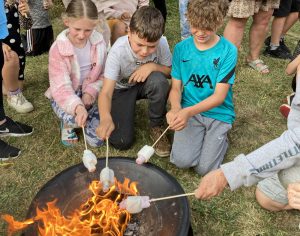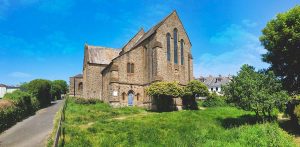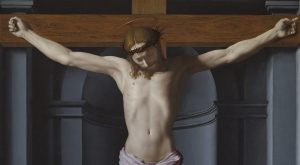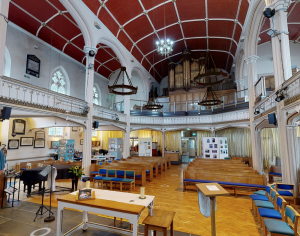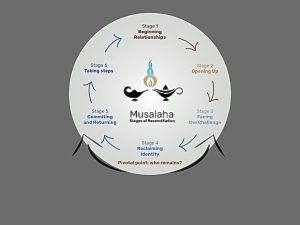St Martin in the Fields

This is the first time that the London Group of Sessions has been held over a weekend. So the first time I have woken up and had to think about where to go to worship….. I chose St Martin in the Fields because of the links we had made over the years with the vicar there Revd Sam Wells through the HeartEdge programme. St Martin’s Church sits on Trafalgar Square but the first challenge was to find a way in to the church as all roads seemed to be blocked by hundreds of runners taking part in the London Winter Run.

There was a visiting preacher Revd Steve Chalke, a Baptist Minister whose church was just across the Thames in Lambeth North. Steve Chalke was the founder of a Social Action Charity called OASIS which now operates across the UK in areas of deprivation by running schools, providing social housing and supporting ex-prisoners.

He began his sermon by painting a picture of life for children in the capital city. The gap between the income going into the poorest families compared to the wealthiest is now greater than when Charles Dickens wrote a Christmas Carol ?!

He had come to St Martins to celebrate a new partnership between St Martin’s and OASIS. In 1699 the then vicar of St Martins, Revd Tennyson set up a school for girls – girls from the parish who had fallen through the net and had no one to provide an education for them. Several years later the school moved out to a part of London called Tulse Hill. As a result of the new partnership between the two organisations the school will from September become a Therapeutic Centre for young people who fall though the net in the 21st century.

A follow up discussion with Steve Chalke and Julie Zadiki, a regular contributor to Radio 4’s Thought for the Day and chaired by Sam Wells was a fascinating listen. Julie was keen to endorse Steve Chalke’s new book Manifesto for Hope. Steve spoke of the importance of the role that local communities can make. He quoted the African proverb It takes a VILLAGE to raise a child’ but in our day we have changed that to ‘It takes a SYSTEM to raise a child’.

He gave an interesting history lesson about the Beveridge Report written in 1942 and which became the basis of the Welfare State. Beveridge wrote a second book in which he argued that the Welfare Provision he envisioned could only be delivered if the State was to work in close partnership with the Charity Sector, which at that time was very dominated by the Churches. Our current predicament has arisen because of the failure to have the State and Communities working together like two parents to nurture and care for society. This reminded me of a comment that Sam Wells made at the HeartEdge conference in Penzance. When in 1948 the church had to give up a large art of the social welfare it had been delivering .. then the people of England lost interest in the Church because the Church then stopped doing interesting things.
Racial Justice

General Synod began after lunch with a debate about Racial Justice. In 2021 a national project was established called From Lament To Action. It acknowledged that the Church of England had at times been unwelcoming to people of Global Majority Heritage GMH and times had been institutionally racist. I had experienced this myself when I went to be a vicar in Dudley. Afro-Caribbean members of that church told me that when they came to the UK from Jamaica to take up work in the home of the British Empire they found they were not welcome in the local parish church even though they had been full members of the Anglican Church in their home country ! Fortunately by the time that I arrived this had changed but several of that community had by then gone to join other churches because of the attitude of the home congregation to them.

The debate was a review on what the programme was achieving. There were good stories of Racial Justice groups being set up in some dioceses and of the difference they are making. But there are several dioceses that are behind in this … and looking at senior appointments in the Church of England there is a dearth of GMH / UKME Bishops and Deans. So work in progress with much MORE to be done was the mark in the ‘school report’.
Standing orders debate
The next debate was one for those who love to indulge in discussions about the legal niceties of General Synod Business. A bit like trying to calculate how many angels can go dancing on a pin. I must admit that it is at times like this I wonder why I am on General Synod at all. The theory is that by looking at our Standing Orders and making our Amendments then this will help us work more efficiently as a body.
So, we spent an hour and a half discussing 10 amendments – several of which were about when the ‘division bell’ should be rung to inform Synod Members who had sneaked off into the tea room for a quick coffee that there was about to be a vote on a motion. It seemed this had become an issue at a recent meeting because the level of noise in the room was so high some people did not hear the bell ringing.

Robert Perry, one of the Truro reps was as ever wanting to be helpful and so made the practical suggestion about getting a bigger bell … as he is one of the Truro Cathedral Bell Ringers he should know about this !!
Families and households

The knock on effect of the time spent on this minutiae of legal stuff meant that the time left for our final debate was seriously curtailed. This was sad as it was a discussion following the Archbishops Commissions on Families and Households which has lots of good material within it. The Commission’s report is called Love Matters and has five priorities
- Value families in all their diversity
- Support relationships throughout life
- Honour singleness and single person households
- Empower children and young people
- Build a kinder, fairer, more forgiving society
Families and Households Commission | The Church of England has a good introductory film about the Report which focuses on issues to which we can all relate in some way, for good and ill. Whether it is those we live with, are related to, or the people we choose, family is usually the source of both our greatest joy and deepest sorrow. It is the place where we find our most profound fulfilment and most intense disappointment, where we experience the messiness and wonder of life… ‘Love Matters’ delivers a powerful, deeply compelling call to action for all of us: put families first.”
What was very powerful about the debate was the very wide understanding of the term ‘family’ which speakers used. So there were stories of
- people who are single living in houses with others who are single but gain a sense of family from that set up
- people who through bereavement or relationship break down were bringing up children on their own as a single parent
- couples who are of the same sex who have adopted children
- and many more…
But the common factor in all of these where they were life-giving was LOVE.




